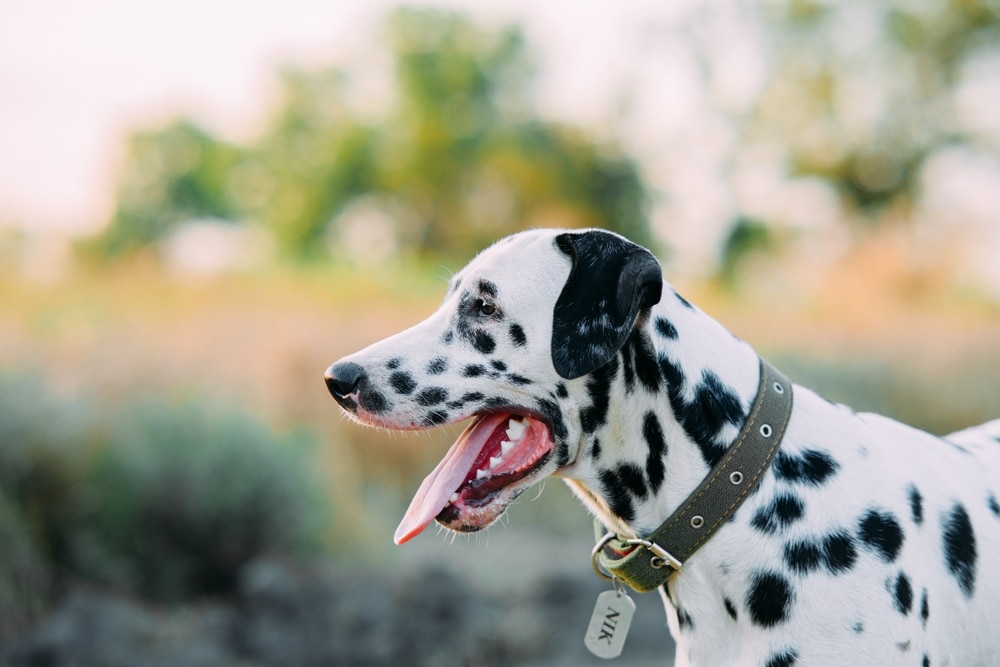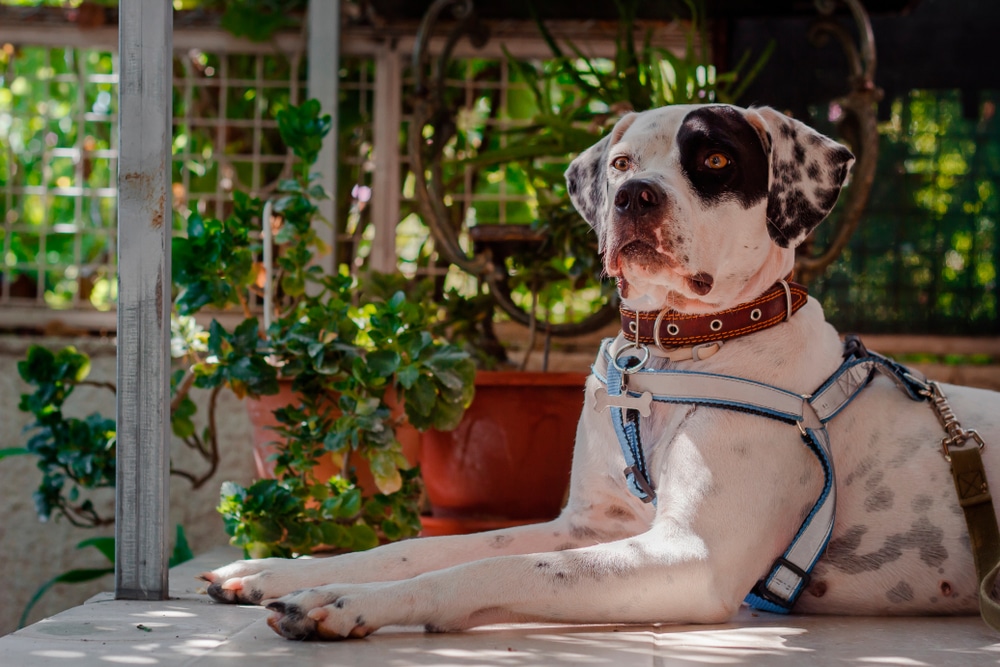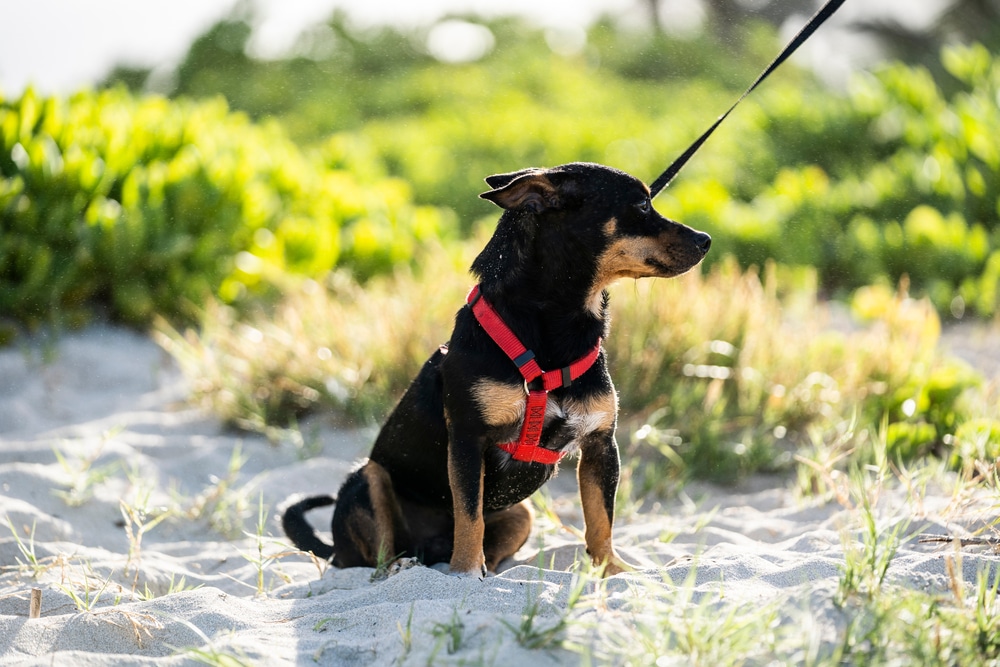You are thinking of getting a new furry friend and are doing all the normal shopping with tons of treats, toys, blankets, and other stuff. Among those, you need a lead, and you wonder, what should I choose, a harness or a collar? Basically, are harnesses better than collars?
Both harnesses and collars have their benefits. Collars are a great choice when you are on the run, compared to harnesses, because they are easy to put on. On the other hand, harnesses are safer for your dog. Ultimately, it’s up to each owner to decide which one best fits their needs and the needs of their dog.
Table of Contents
Let’s Talk About Dog Collars

Before we begin explaining the positive and negative sides of a dog collar, let us explain what a dog collar is. A collar goes around your dog’s neck, usually made from leather or nylon, and at the end, it closes with a buckle or clasp.
There are different types of collars as well. Some of them are slip, others are martingale, and there are also ones called halters (there are also bark collars!). Which one you choose depends on your dog and the training you are trying to do. Nowadays, you can find very fancy and modern styles with different colors. Trust me, I own one dog and have at least 10 different leads with different collars.
Why You Should Choose A Dog Collar
There are many reasons to get a dog collar. Here are some of them, starting with how easy and simple they are.
Easy And Simple
Using a dog collar means you won’t need a lot of time to prepare before the walk, and a collar will stay on your dog’s neck the whole time. We all know that dogs get super excited when it’s walk time, so it’s important to have something that’ll stay on during their excitement.
Greater Control
Also, a collar gives you more control over your dog. This is especially important if you have a more mischievous dog or a puppy in training. No one likes to be pulled around when they are walking!
Easily Used For Identification
Collars are great to attach some basic information about your dog on a dog tag. In case your dog gets lost and found, it can be returned home quickly if it has a tog tag with your contact info. This really comes in handy if your dog is a flight risk!
Good For Puppies In Training
Collars and leads are usually what dog trainers would recommend when you first start obedience classes. They are convenient to control and correct your puppy, especially when you are trying to use the positive reinforcement method.
Why You Should Not Choose A Dog Collar
Sometimes people have had bad experiences with collars, like puppies getting stuck and being unable to get loose. Or they simply do not prefer to have their dog on a collar. Other reasons why people may not be fond of the collar are the following.
Not Suitable For Every Dog Breed
Certain breeds, especially toy breeds, may be prone to injuries when a collar is used. Other breeds may have existing breathing issues like a collapsing trachea. Some of those breeds are chihuahuas, greyhounds, Yorkshire terriers, Maltese, and toy poodles. Brachycephalic breeds such as bulldogs and pugs can also have problems.
Dogs Can Escape Easily
If the collar is not tight enough, your dog may be able to escape. It is easy for a dog to slip out of its collar, and get hurt. Or if you have a curios dog that loves to put its head everywhere, it might find itself in a sticky situations
Let’s Talk About Dog Harnesses

A dog harness wraps around your dog’s chest, and it can be used on both large and small breeds of dogs. They can go over the head or go under the dog’s front legs. The best way to choose the perfect harness is by taking measurements of the head, neck, and chest, to ensure you get the best-looking harness for your pooch that fits it perfectly and doesn’t cause any pain.
Why You Should Choose A Harness
Just like with dog collars, there are many reasons for choosing a dog harness. Here are some of them.
Prevent Injury
If you have one of the previously mentioned dog breeds known to have breathing problems, then the harness is your friend. Dogs such as whippets or greyhounds also have thinner necks, which makes them unsuitable for a collar, hence why a harness is a better option for both them and you.
Better Control
Dog trainers are pretty united about this question. They say a harness can give you more control over your pooch, especially if it is a big breed of dog, such as the Samoyed. When using a harness, the possibility of your dog slipping away from it is minimal.
Why You Should Not Choose A Dog Harness
Here are some reasons not to go with this option.
It Takes Time
The downside of the harness is that it can be difficult to put it on your dog especially because it is excited. After all, it does know that the harness means that it’s walking time!
You Need To Visit The Gym More Often
This says it all. A harness could give you less control over your dog, which means you may need to go to the gym three times a week if you want to be able to withstand a pull from your canine.
Flight Risk
If you just pick a harness because you like it and not because it fits your dog, then you may end up with a dog on the loose.
Conclusion: Are Harnesses Better Than Collars?
I know you want the best for your puppy because so do we! That’s why we give you the positive and negative sides of both the collar and the harness, so we can help you decide what is best for your dog.
We do wish we could make the choice for you, but sometimes it takes a bit of time to find what works better for you and the puppy. Do not be disappointed if your puppy doesn’t enjoy it in the beginning. Just like getting a new wooly sweater, it takes time for you not to itch, right?
So, which one do you want to go with? A harness or a collar? And why? Let us know in the comments below!
